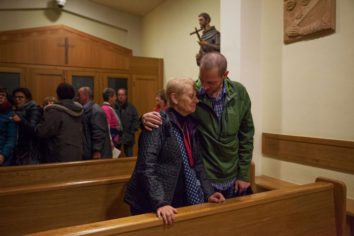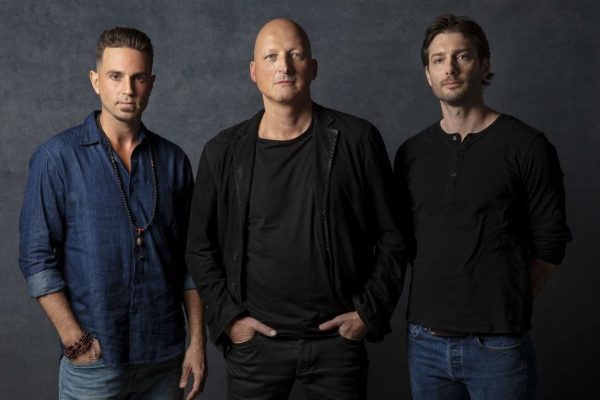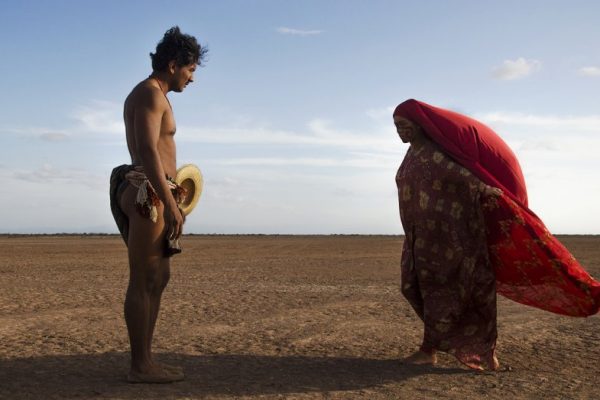For Ireland, former president Mary Robinson is as iconic a figure as Eleanor Roosevelt is here in the United States. During her presidency, from 1990 to 1997, she recast a historically ceremonial role into a powerful one, symbolic of Irish spirit—and of the hopes of the country’s women. Now, in time for St. Patrick’s Day, the onetime U.N. high commissioner for human rights has published her memoir, Mary Robinson: Everybody Matters—a book that dovetails with the U.S.’s own rekindled debate about women and power.
I first met Robinson in 1992, when I went to Ireland for Vanity Fair to interview her, then just over a year into her seven-year presidency. I saw firsthand how she was transforming women’s views of themselves in the Irish countryside—from being “the hand that rocked the cradle” to “the hand that rocked the system.” These were the overlooked women who were in fact the community infrastructure of help and hope, but thought little of themselves. “I’m just a housewife” was their common refrain, Robinson recalls.
When she repeated the themes of that speech in a later engagement, after she was elected to the Irish senate, all hell broke loose—beginning with her anguished parents. “I had focused solely on the legal issue, not appreciating the political realities,” Robinson writes in the book. “It was a hard lesson to learn that there was not only political opposition but also a cultural lack of willingness in Irish society to talk about sexual matters. Even mentioning sexual matters was more than most people wanted to do.”
To me, Robinson says she “touched a raw nerve by referencing family planning. It was so going against the grain of everything being taught then to talk about contraception. I totally underestimated how negative the reaction would be.” Still, the experience “helped me enormously later,” when, as the U.N.’s high commissioner for human rights, she had to be sensitive to tradition and religious beliefs.
(And, of tradition and beliefs, Robinson responded to news of Argentine cardinal Jorge Mario Bergoglio’s papal appointment, telling us she was “pleased to learn that the new pope is from Latin America and is a Jesuit. I think both experiences should stand to him as he embarks on his new challenge.” Of his name, she said, “the choice of the name Francis seems to indicate he intends to follow in the footsteps of Francis of Assisi and he is a reformer. I hope so.”)
In office in the 1990s, Robinson became the first Irish president to visit Northern Ireland and the first to meet the Queen. She was used to being first, to being praised for her brilliance, for her three law degrees, including a master’s from Harvard, and also for being the mother of three with an adoring husband, Nick Robinson—a fellow lawyer and political cartoonist who always subsumed his own career for hers.
“It amazes me how he has that humor just when I’m getting cross or too tense or preoccupied,” Robinson says of her husband today. “It is a very close relationship mostly because we are really, really good friends.” Their bond was tested in 1997, when she left the presidency two months early for the United Nations post in Geneva. Suddenly Nick—always her most trusted adviser and sounding board—was unable to travel with her. Her canny political operative and Irish Sancho Panza—Bride Rosney—didn’t know anything about the U.N.’s byzantine, bureaucratic workings, either.
During those first months as high commissioner—when she was criticized by U.N. Secretary General Kofi Annan for not being loyal—she nearly had a total meltdown, she admits in the book. It wasn’t until her first Christmas break at home, when one of her four brothers told her that she was headed for disaster, that she got the “jolt” she needed to get her life back on track.
“I remember that older-brother voice from childhood saying, ‘You’re going to get into breakdown territory here,’” she told me, and her confession of despair has proven to be one of the most talked-about parts of the book, first published in Ireland last fall. Robinson was simply not used to admitting or handling vulnerability. “I wrote the book with my daughter, Tessa, and I would not have written even as much as I did, but she said, ‘You’ve got to talk about it.’”
Robinson’s early days were spent in Ballina, in County Mayo in the far west of Ireland. Her doctor parents were well off—her father had his office at their home, which her mother managed—and bookworm Mary clearly resented her mother’s early efforts to try to turn her into a debutante. Of her upbringing, she says today that she wasn’t raised like a boy—“It was more the sense that I had the same potential as boys. I was treated as a girl, but with great potential.” Years later, she realized while listening to a group of women leaders in Africa—all of vastly diverse backgrounds—that a belief in potential was the commonality. “The link was, ‘My father believed in me,’” she writes.
Beyond paternal encouragement, Robinson was shaped by influences as disparate as her Aunt Ivy, a yoga-practicing Sacred Heart nun, who taught her how to make a difference in a life; a year at a Paris finishing school, dwelling in a convent with nun role models, but enjoying wine over meals and hijinks with socialite friends; and a deeply influential year at Harvard Law, where she studied for a special master’s in 1968.
Today, with Everybody Matters, Robinson says that her objectives are to “encourage people to explore the words ‘human rights.’ They are not friendly words. What exactly does it mean? It seems cold, abstract, finger pointing. I wanted to encourage young people and to get them involved,” she says. Fair enough. The reader does learn a great deal just by tracing her global trajectory and her unstinting will and determination to make a difference. (Meanwhile, though Robinson chronicles harrowing experiences—especially facing down dictators in war-torn Africa, where her own life has been at risk more than once—the parade of conferences, declarations, and admirable characters with unpronounceable names is beyond daunting in the last third of the book.)
Much more interesting are her many examples of handling power—of not shrinking from taking on big battles, though she has never identified as a doctrinaire feminist. “I wanted the book to be encouraging of all strands of feminism. I am totally committed to the equality of girls and women,” she told me, “but I want change from what it is,” not to “start with a feminist analysis—a more radical analysis.”
When I asked her what she made of the current work-life-balance debate among women here, she said, “Coming from the outside, I think it is extremely encouraging.” Referencing Ann Marie Slaughter’s article in The Atlantic, Sheryl Sandberg’s book Lean In, and Yahoo C.E.O. Marissa Mayer’s edict against working from home, Robinson notes that the women’s movement is “not what any one individual says—I’m pleased because the subject is now back on the agenda. Part of my take would be to have more men want to write more about work-life balance. It’s because we now have more women in higher posts that it’s become a more lively debate again.” And that debate in developing countries has reached a crucial tipping point in her eyes: “Many women in the Arab world are on the move, and they so resent that they are bracketed as marginalized,” she says. “African women are conscious of their economic empowerment now.”
What Robinson deftly avoids is giving advice on what works best. “I don’t have answers. I say, This is the way I did it: when I was elected president, I sat down with my family and said, ‘You are the most important thing to me.’” (Today Robinson’s daughter Tessa is the mother of two and a legal editor in Ireland; her son William, married father of two, is an architect in Barcelona; and her youngest, Aubrey, is working on documentaries in Ireland.)
Currently, Robinson heads her own foundation, Mary Robinson Climate Justice, which is based at Trinity in Dublin and focuses on preventing the dire consequences of a much hotter future. At 68, Robinson, who received the Medal of Freedom in 2010 from President Obama, is one of the youngest members of a very exclusive world body, the Elders, the original brainchild of Peter Gabriel and Richard Branson, which includes Nelson Mandela and his wife, Graca Machel, Desmond Tutu, Jimmy Carter, Mohammad Yunus, and others. They lend their wisdom and considerable moral authority to various world crises and challenges.
When I told her I thought 68 was a little young to be an Elder, she answered, “I fit very much the Irish granny. I dedicated the book to my four grandchildren and I’ve reached the stage of Elder. That means I have the privilege of being bossy, and I do use it at all levels”—especially “with those in power who should be doing things,” she adds.
Robinson did part with one piece of advice—one that “goes for any president or leader: Unless you surround yourself with people who tell you the truth, you’re foolish.” This is from a world leader who, shortly after leaving the Irish presidency, stood helplessly in an elevator for several minutes wondering why it wasn’t going anywhere. Her sidekick Bride Rosney told her why.
“You have to push the button.”
Mary Robinson had not done that for seven years.
Original Publication: vf.com March 2013.




